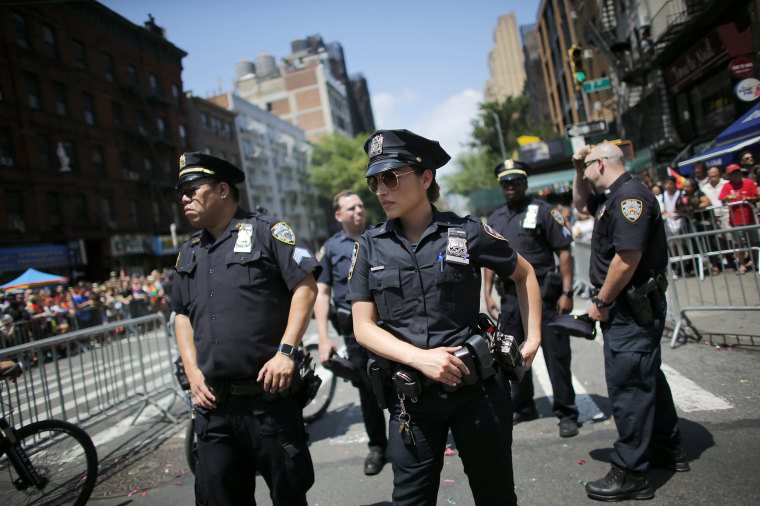New York City is preparing for the possibility of a biological attack like the one that poisoned former Russian spy Sergei Skripal and his daughter in England, says top NYPD counterterror official John Miller.
Miller, NYPD deputy commissioner for counterterrorism and intelligence, said the NYPD has compiled addresses of potential concern for a biological or poisoning attack and worked with the FBI to develop a list of individuals who may be targeted, including former Russian citizens and critics of the current Russian regime.
"We've compared notes with our colleagues in the UK [on] this," said Miller. "We work very closely with the FBI on [who] potential targets [may be]. ... Those people have been talked to, those addresses have been flagged in our systems."
The NYPD also recently conducted a series of table-top exercises and an extensive field drill on how to handle a possible chemical and biological incident.
The NYPD's resources are deployed every year for these types of incidents but, Miller noted, this year the police department has a "heightened" vigilance following the events in the U.K.
Miller's remarks came Thursday during a briefing by the NYPD, Secret Service and FBI on security preparations for the United Nations General Assembly (UNGA) at the U.N. in Manhattan.
NYPD Commissioner James O'Neill said that "at this time we have no direct concerns of terrorism for UNGA specifically and for New York City."
During UNGA, which officially began Sept. 18 and lasts through early October, law enforcement will have to monitor and protect 100 motorcades of foreign dignitaries per day, deploying thousands of cops in uniform and undercover. More than 200 concrete block barriers and 48 sand trucks will be put in place to block vehicle attacks.
Russians named as suspects
Skripal and his daughter were found slumped on a park bench in Salisbury, England on March 6, after being exposed to a rare Russian nerve agent at Skripal's front door earlier that day. Months later, the perfume bottle used to carry the nerve agent was found by an unsuspecting local couple. Charles Rowley gifted the bottle to his girlfriend Dawn Sturgess, who sprayed herself with what she thought was perfume, but was in fact the deadly Soviet-designed nerve agent Novichok. She died eight days later. Rowley, like Skripal and his daughter, fell critically ill but eventually recovered.
British authorities have named two Russian men as suspects in the attacks, based on voluminous closed-circuit camera footage, and have linked them to Russian intelligence. The Russians, now back in Russia, deny any involvement.
Concerns have been brewing for months that similar attacks could be repeated elsewhere. The U.S., U.K. and other allies have imposed sanctions on Russia, expelling diplomats and tightening export rules.
